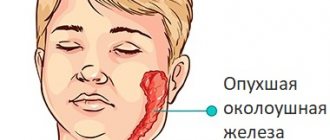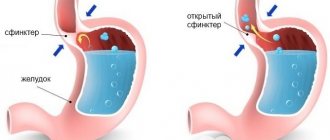We recommend reading: How to fall asleep quickly: the most effective ways
Daytime sleepiness is a warning about serious illnesses
Many people complain that they constantly want to sleep, regardless of the hour period and location. It makes you sleepy everywhere and always, in the morning and evening, at the workplace or in the gym.
When drowsiness appears during the day, the reasons for this phenomenon may be different.
- diseases;
- insufficient duration of rest;
- use of various means;
- wrong lifestyle.
To normalize well-being, you need to identify the unfavorable source and eliminate it.
Diabetes
This dangerous disease can lead to drowsiness during the day, since due to changes in the balance of the hormone insulin, which is responsible for supplying easily digestible elements inside the cells, it can cause an increase and decrease in the saturation of glucose in the circulatory system. As a result of such changes, chronic lethargy and drowsiness appear at lunchtime.
In addition, damage to the cerebral cortex is possible, the formation of a psychoorganic syndrome, which leads to drowsiness during the day.
Apnea
Often, the symptom of hypersomnia can occur due to apnea in older people. There is also a tendency among overweight people. With this disease, when a person rests at night, the respiratory process stops and due to lack of oxygen, he wakes up.
The man snores, then falls silent. After a while, it vibrates again. During these breaks in the attack, the brain suffers from a lack of oxygen, which causes a sleepy state throughout the day. In addition, high blood pressure is possible in the morning.
Hypertension
The disease often develops in people over 40 years of age who have bad habits and suffer from excess body weight and diabetes. Place of residence and hereditary predisposition also play an important role.
List of symptoms warning of the presence of this disease:
- regular increase in pressure at rest;
- insomnia at night;
- daytime lethargy;
- dizziness;
- nausea.
If such a condition develops, you should immediately contact a doctor.
Hypotension
In the case of a regular decrease in pressure, this will lead to a problem with blood flow to the brain, manifested by:
- weakness;
- drowsiness;
- headaches;
- brokenness.
Treatment of the disease is carried out under the supervision of a therapist.
Anemia
With illness, the level of hemoglobin and red blood cells decreases, as a result of which the supply of oxygen by blood to organs and tissues becomes worse. A person's memory deteriorates, he feels dizzy, and lacks strength and energy. Sometimes fainting happens.
Idiopathic hypersomnia
The disease especially appears in young people. Due to the absence of other factors, which makes one constantly want to sleep during the day, the disease is diagnosed by exclusion.
In this state, a desire to rest during the day is noted. Interested in finding a solution to the problem, the patient complains that he always has a strong desire to rest. It happens that a person tends to sleep while powerlessly awake. In the evening the patient quickly falls asleep.
When you regularly want to go to bed and develop regular fatigue, this condition leads to serious problems.
Thyroid disease
Often, daytime sleepiness can warn of an illness related to the function of the endocrine system. This disease is often accompanied by weight gain, changes in stool, and hair loss.
Also, the patient may feel chills, fatigue, cold, although it will seem that the body has had enough sleep. If the functioning of the endocrine glands is upset, you should contact an endocrinologist.
Causes
There are physiological and pathological reasons for the constant desire to sleep. Such changes occur under the influence of various factors, and when eliminated, the condition normalizes. Sometimes such changes are observed due to malfunctions of internal organs. Causes of daytime sleepiness may include pregnancy, changes in weather conditions, taking medications and a number of diseases.
Natural factors
Daytime sleepiness is often caused by weather changes. Heavy rain helps lower blood pressure. At the same time, the person really wants to sleep. In addition, there is a feeling of weakness. As soon as the weather improves, the condition returns to normal.
Some people react this way to extreme heat. It is also possible for such symptoms to develop during periods when the length of daylight hours begins to rapidly decrease. At the same time, the body begins to synthesize the sleep hormone much earlier than expected.
Lack of night sleep
Chronic lack of sleep is the most common cause of daytime sleepiness. Even if a person is sure that he has enough sleep at night, in fact this may not be the case. Sleep can be incomplete, its phases may be confused. In addition, frequent awakenings due to stuffiness and noise are possible.
Lack of sleep leads to a whole range of unpleasant symptoms. The eyes hurt, there is excessive irritability, deterioration in general condition and decreased performance.
Overwork
Severe fatigue, weakness and drowsiness during the day appear in case of overwork. Traveling, working, shopping and everyday problems lead to the fact that a person simply has no energy. The brain needs rest, but it is forced to continue working for days. The solution to the problem is to take a break from work. To restore the activity of the nervous system, you should take at least a short vacation.
Stress and depression
In situations where it is necessary to solve serious problems, a person initially has enough energy, but in the absence of the desired result, apathy sets in. There is no longer any strength to fight further. There is constant fatigue and weakness. Daytime sleepiness is the body's protective reaction to stress.
Depression can also lead to similar symptoms. With severe mental damage, interest in everything that happens around is lost.
Taking medications
Among the causes of constant, severe drowsiness are the use of medications used in the treatment of mental and neurological disorders. Among these drugs:
- neuroleptics;
- antidepressants;
- tranquilizers.
In addition, people get tired more quickly when taking first-generation antihistamines and hypertension medications.
Infectious diseases
The feeling when the whole body hurts and you want to sleep with an acute respiratory infection is familiar not only to adults, but also to children. Such changes are due to the fact that the body is trying to use all its strength to fight the infection. Daytime sleepiness is also observed in the absence of pronounced symptoms of pathology. In this case, the presence of a hidden inflammatory process occurring in one of the organs provokes a similar condition.
Hormonal imbalances
A considerable number of hormones can affect nervous and physiological processes. If their concentration is insufficient, then the person constantly wants to sleep during the day, there is a loss of strength, weakness and fatigue. It is also possible that the immune system is suppressed, a decrease in blood pressure, lack of appetite and a sharp decrease in body weight. Hormones synthesized by the thyroid gland and adrenal glands can provoke such changes.
Reduced blood flow to the brain
There are a number of pathologies in which the brain experiences a lack of oxygen, and as a result, malaise and daytime sleepiness occur. Among these diseases:
- asthma;
- pneumonia;
- bronchitis;
- increased blood pressure;
- atherosclerosis;
- ischemia;
- arrhythmia;
- heart attack
Intoxication of the body
If you want to sleep and weakness appears throughout the body, then such symptoms often indicate pathologies of the kidneys or liver. They can occur in acute and chronic forms. At the same time, toxic substances enter the body, causing the appearance of such symptoms.
Severe poisoning occurs under the influence of medications and a number of harmful substances.
Atherosclerosis
Often, sleepiness during the day warns of a serious illness - atherosclerosis. It is generally accepted that only older people are susceptible to it, but cases of the development of this pathology have become more frequent in young people. In this case, the brain vessels become clogged with lipids, which are deposited on the walls. Blood circulation is impaired, a feeling of noise in the head appears and memory deteriorates.
Osteochondrosis
The development of this disease is most often observed in people engaged in sedentary work. Among the symptoms of the disease, it is not only that a person constantly wants to sleep. The following changes are also observed:
- lethargy;
- neck pain;
- difficulty concentrating;
- increased fatigue;
- spasms of the cervical arteries.
Pregnancy
It is not surprising that a woman always wants to sleep during pregnancy. The point here is not at all that the expectant mother gets tired faster. From the moment of successful fertilization, the need for rest increases significantly as a result of hormonal changes. As a rule, daytime sleepiness is observed in the first trimester, and after that the body functions normally. In later stages, such symptoms indicate anemia or eclampsia.
Anemia, vitamin deficiencies, dehydration
Conditions in which there is a deficiency of blood in the circulatory system and hemoglobin often lead to impaired blood circulation in the brain. With anemia, constant weakness and fatigue are often observed. The eyes become “heavy” and I want to sleep. In addition, pale skin and dizziness are noted. If dehydration occurs or the body lacks nutrients, similar symptoms also appear.
Bad habits
People constantly feel sleepy when they drink too much alcohol. This effect is due to the negative impact on the nervous system and vital organs. Loss of strength is not excluded due to smoking, in which the blood supply to brain tissue deteriorates. Narcotic substances have a sedative effect.
Mental and neurological diseases
There are neurological and mental causes of drowsiness. As a rule, such conditions are accompanied by apathy, fatigue, increased fatigue and a number of other symptoms. The following health problems can provoke such changes:
- vegetative crises and seizures;
- apathetic stupor;
- psychosis, regardless of its type;
- epilepsy;
- schizophrenia.
Daytime drowsiness as an effect of taking medications
Almost all medications affect dreams, disrupt them at night (a person cannot get enough sleep) or cause daytime sleepiness. To maintain proper rest, you should decide with your doctor the time and dosage of the medications you take.
First of all, this applies to drugs that provoke asomnia.
- Beta blockers.
- Bronchodilators.
- Corticosteroids.
- Decongestants.
- CNS stimulants.
- Difenin.
- Thyroid hormones.
Since insomnia often accompanies depression, people who have difficulty falling asleep use antidepressants. It is these drugs that occupy an important place in influencing the structure of dreams.
Amitriptyline, Sinequan, Trazodone reduce the duration of REM sleep and increase the slow-wave dream cycle. Medicines cause a feeling of drowsiness, affecting activity during the day.
During depression, monoamine oxidase inhibitors are prescribed - Tranylcypromine, Phenelzine, which can cause fragmented, restless rest with frequent waking up. Drugs reduce the duration of REM sleep and lead to daytime lethargy.
Results of stress
Severe fatigue and drowsiness at the initial stage is characterized by high excitability, insomnia as a result of the release of adrenaline and cortisol. If the causes of stress persist for a long time, the adrenal glands become exhausted and hormone production decreases.
A rapid loss of strength is observed in people who suffer from chronic adrenal insufficiency, rheumatic diseases, and with long-term use of glucocorticoids.
Why you always want to sleep: reasons
Fatigue is not always combined with tiredness. Drowsiness is characterized by a feeling of exhaustion, yawning throughout the day, and does not go away even after proper rest.
Moreover, such a symptom negatively affects all areas of human activity, and in some professions, especially those requiring increased attention and concentration, can become life-threatening.
This condition can be associated with a number of natural and life reasons.
- There is always a lack of fresh air. Lack of walks, stuffy rooms, shallow breathing. Everything that is associated with insufficient oxygen supply to the brain affects well-being. By the way, frequent yawning is the first sign of lack of oxygen.
- Medicines. Many drugs have side effects such as drowsiness and apathy. Typically, instructions on such actions can be found in the drug instructions. These include antihistamines (anti-allergic), antidepressants, beta blockers, and sedatives.
- Vitamin deficiencies. Usually, a lack of vitamin B12 affects the loss of strength. Its main function is to provide oxygen to nerve cells and red blood cells. Often the cause of illness is a lack of vitamin D.
- Depression. This neurological disease often results in weakness, depressed mood, loss of interest in favorite things, anxiety, insomnia or drowsiness.
- Weather. Especially the cold season, rain, slush, short daylight hours without sun, speak for themselves.
- Comfort of the bedroom. Bedroom interior: wallpaper, curtains, chandelier should be pleasing to the eye and calm to the nerves.
- Magnetic storms. Each of us has one or another weather dependence. Low atmospheric pressure makes you sleepy.
- An unbalanced sleep-wake pattern is the most common cause of sleep deprivation and fatigue. After all, even with 7-8 hours of sleep there can be superficial phases, frequent night awakenings, snoring, and apnea.
- Failure of the biological rhythm in the body. Changing the clock, working or having fun at night will somehow affect your well-being.
- Pregnancy. Hormonal imbalance, which is especially clearly observed in the first trimester, negatively affects the daily routine. A woman needs more rest, and this condition is not a pathology.
- Dehydration. Significant loss of electrolytes, which occurs with persistent vomiting, diarrhea, diets that cause a feeling of weakness and drowsiness.
- Nutrition. There is no doubt about overeating any food at night. Low calorie diets.
- Smoking and alcohol will only add to the list of causes of CFS.
- Hypotension. Low blood pressure. A real-life example is given at the end of the article.
Interesting video
Impact of addictions
Alcohol intoxication is quite common. After drinking alcohol, a stage of excitement begins. When it passes with mild intoxication, the dream stage is designated. The person is lethargic, his head feels heavy, he wants to go to sleep.
During smoking, vascular spasms occur, oxygen is poorly supplied to the cerebral cortex, which leads to inflammation and excitation of the inner lining of blood vessels. That’s why almost a third of smokers are sleepy and lethargic.
Signs and underlying causes of drowsiness
0
Source:
See all photos in the gallery
In modern society, people no longer need to endure such heavy loads as before, associated with heavy physical labor. But then you have to process colossal amounts of information, so it is not surprising that from time to time the body requires a reboot. Along with the desire to hug a pillow, you may experience problems getting up in the morning, lethargy and weakness during the day, irritability, causeless anxiety, weakened concentration, memory impairment, inability to concentrate on something specific, and lack of appetite. Symptoms such as drowsiness can be caused by disturbances in sleep and rest patterns, unhealthy lifestyle, regular stress, and certain diseases. To understand the mechanism of specific reasons why you constantly want to sleep, it is necessary to consider each of them in more detail.
Diseases of the central nervous system, as a result of changes in the functioning of internal organs
If a person does not know how to deal with lack of sleep at home, it is necessary to undergo an examination to exclude or diagnose diseases of internal organs
- Malignant formations. Sometimes the explanation for why you always want to rest is poisoning and exhaustion due to the breakdown products of cancerous formations. Therefore, factors if a person goes to bed all the time and has no strength, must be identified in order to exclude a dangerous disease at an early stage.
- Dehydration of the body. It doesn’t matter what kind of activity adults have, intellectual or physical, the body requires fluid. With dehydration as a result of loss of electrolytes and water due to diarrhea and vomiting, the total mass of circulating blood decreases. As a result, the person is drowsy and weakened. If you drink up to 2 liters per day, there is no risk of dehydration.
- Poisoning due to infection. To understand why there is a desire to sleep during the day, you need to be checked for infectious diseases. Fungal, viral, parasitic, and bacterial infections have a toxic effect on the body, causing a similar phenomenon. Often, a chronic form of fatigue occurs due to a herpes infection. And constant drowsiness is accompanied by a decrease in work activity, a weakened protective function of the body, and drowsiness.
- Head injury. After a concussion, head contusion, or cerebral hemorrhage, various disorders of consciousness, including stupor, may be detected. This phenomenon is similar to a long dream with a possible transition to a coma state.
Make no mistake
Maybe it's age?..
No. You're not a baby or a 70-year-old woman, are you?
It is normal for a person to have a healthy supply of energy for the day, because he receives energy every day during sleep and while eating.
And this energy should be enough for work, and for family, and for hobbies and entertainment, and for oneself.
If this is not the case, there has been a failure somewhere in your life. Need to find.
Maybe I'm just that kind of person?
I had this thought. There are people with an awl in an unusual place, which means there must also be people with little energy in life...
Also no. More precisely, to some extent this is actually true, but nature does not make people SO low-energy. A person should not want to sleep all the time.
Or maybe that will do? I have the opportunity to sleep a lot...
You have one life, and it's already underway. You can do a lot if you don't sleep on your life.
In addition, constant sleepiness is not just some harmless quality. This is an alarm signal from your body! And if you don't deal with the problem, expect much more serious health problems.
Well, are you into it? Are you motivated to solve the problem? Then let's look for the cause of your fatigue.
Daytime sleepiness due to disturbed sleep at night
Why do you want to sleep during the day, but not at night? You can’t cheer yourself up, even though you’ve spent a sufficient amount of time in bed. Such disorders may be associated with the quality and quantity of night sleep, determined by the following symptoms:
- constant awakenings occur, and then it is difficult for a person to fall asleep;
- Daytime sleepiness leads to frequent bouts of unintentional rest at any time;
- heavy snoring;
- headache;
- inability to move the body after waking up (Parkinson's disease);
- other.
These signs indicate a violation of dream phases.
In men, daytime sleepiness is often associated with apnea (eating heavily in the evening, drinking alcohol, smoking, being overweight). Older people want to sleep in the middle of the day due to reduced REM sleep duration and the need for bed comfort. Fatigue after lunch indicates excessive coffee consumption in the morning.
Drowsiness in children
The problem of children's sleepiness during the day is more common than in adults. This occurs due to greater instability of the central nervous system, high sensitivity to the influence of unfavorable factors. Therefore, a lethargic and sleepy state in infectious diseases occurs early and clearly, and can be the first symptoms of a disease that warns of danger.
In addition, if fatigue and drowsiness suddenly appear, head injury and intoxication must be ruled out. When a child’s problem of drowsiness is not very pronounced, but has a chronic course, then we can assume the following diseases:
- leukemia;
- tuberculosis;
- heart defects;
- hepatitis;
- diabetes.
The list of diseases that occur in children with drowsiness is long, so it is better to get examined.
What will happen if you do nothing?
If you do nothing, sooner or later the problem will get worse.
- You will want to sleep more and more, and at the same time, you may experience night insomnia
- The nervous system begins to malfunction
- Your character will deteriorate, you will be anxious and always unhappy, you will stop noticing even the good
- Immunity will decrease and the risk of contracting a virus or infection will increase.
- Digestion will be impaired, making you look and feel even worse
- Stable depression and advanced neurosis will form
- Health problems will begin to develop
Be attentive to yourself and your body. Do something, because it has been ringing the alarm bell for a long time! The sooner you start solving the problem, the less damage it will have time to cause.
Watch this three-minute video about daytime sleepiness:
Treating daytime sleepiness
Non-drug treatments for daytime sleepiness include:
- Balanced diet. A nutritious breakfast is a must. For lunch, it is better to avoid fatty foods. It is recommended to eat more protein-rich foods. It is important to drink tonic drinks such as tea, coffee, hot chocolate.
- Phytotherapy. An infusion of ginseng, eleutherococcus, lemongrass, and echinacea has a beneficial effect.
Drug therapy is used mainly to treat pathological hypersomnia:
- Amphetamine, its analogues - “Destroamphetamine”, “Methylphenidate”. The dosage is determined individually by the attending physician.
- Caffeine. Available in the form of tablets and drops. Take 100-200 mg 6 times a day.
- CNS stimulants. These drugs affect the level of histamine in the human body. Take 150-250 mg 1 time/day.
- Nootropics – “Nootropil”, “Piracetam”. Used in the treatment of drowsiness caused by central nervous system dysfunction. The effect of these drugs is due to improved blood supply to the brain.
- Iron preparations – “Ferrum Lek”, “Maltofer”. Prescribed for the treatment of iron deficiency anemia.
Taking medications to eliminate daytime sleepiness should only be taken as prescribed by a doctor.
The problem of drowsiness and lethargy in women
A common cause of female fatigue is iron deficiency anemia. Often this condition occurs due to menstrual blood loss. During menopause or premenstrual syndrome, loss of strength, drowsiness, and decreased performance may occur.
Constant lethargy is also a symptom of hypothyroidism, a thyroid disorder that affects women more. The disease is accompanied by drowsiness, swelling, dry skin and other symptoms.
There are frequent complaints of increased sleepiness among pregnant women. In the first trimester, this is considered a normal reaction to hormonal changes in the body. If complaints persist in the second and third trimester, drowsiness indicates anemia or late toxicosis. In this case, consultation with a specialist is necessary.
Immobility
People who have to sit constantly while working often feel sleepy during the day. This can be explained by stagnation: in the absence of physical activity, blood flow in the vessels slows down, the brain begins to suffer from a lack of oxygen and nutrients.
The way to solve the problem in this case is obvious: you need to do a warm-up from time to time. You need to leave your workplace at least once within an hour, walk, and do exercises for your arms, neck and legs. Usually, a few movements are enough for drowsiness to disappear and lethargy to be replaced by vigor.
For office workers, it is important to make up for the lack of exercise by playing sports in their free time. In this sense, the best choices are cycling, running or brisk walking, and swimming. Skiing and family outdoor games are beneficial in winter.
Pathological drowsiness
Pathological drowsiness occurs due to disturbances in the functioning of the body. When a person constantly wants to sleep, the reason may be:
- Chronic or acute infectious diseases. As a result of these ailments, mental and physical strength is depleted. Increased sleepiness is most often observed during the stage of recovery and restoration of the immune system.
- Atherosclerosis of cerebral vessels. Causes oxygen starvation. In addition to constant drowsiness, headaches, tinnitus, and other characteristic symptoms appear.
Note! Increased daytime sleepiness may be a precursor to a stroke.
- Anemia (anemia). Along with lethargy, memory loss, decreased ability to work, and increased fatigue, drowsiness appears.
- Injuries suffered. Lethargy is observed after a concussion or hemorrhage.
- Osteochondrosis of the cervical spine. A clear sign of this disease is pain in the neck, which can radiate to the area between the shoulder blades, shoulders and arms, or be felt in the crown and back of the head.
- Hypotension. Low blood pressure is a common cause of drowsiness. In this condition, one often experiences dizziness, headaches, sweating of the palms and feet, memory impairment, and absent-mindedness. Fatigue and powerlessness are felt in the morning, as soon as a person gets out of bed.
- Sleep apnea. Stopping breathing during sleep, which a person may not even be aware of, causes oxygen starvation and short-term awakenings, which make the patient feel exhausted during the day. Apnea is most common in men.
- Depression. Drowsiness is a subconscious reaction of a person who seeks to escape into the world of dreams from an unsatisfactory reality.
- Chronic fatigue syndrome. The constant desire to lie down and sleep is just one of its manifestations.
Important! According to research by French scientists, daytime sleepiness in older people is associated with the risk of death from cardiovascular diseases, in particular from heart attack and cardiac arrest.
Constant lethargy is often associated with abnormalities in the functioning of internal organs, including:
- liver pathologies (cirrhosis, hepatitis, cancer);
- kidney disease (nephritis, pyelonephritis, hydronephrosis);
- problems with the gastrointestinal tract (accompanied by pain in the affected organ, for example, with diseases of the pancreas it hurts in the side on the right, with a stomach ulcer - more often on the left);
- shock, bleeding;
- malignant tumors;
- intestinal obstruction;
- rheumatism.
USEFUL INFORMATION: Why does a child moan in his sleep?
In an old, seriously ill person, excessive drowsiness and weakness, along with decreasing periods of wakefulness, lack of appetite, and fluctuations in body temperature indicate the approach of imminent death.
Seasonal affective disorder
Autumn, winter and spring are traditional times for the occurrence of pseudo-depression and mental disorders. The state of tearfulness and depression, melancholy and despondency cannot be ignored. The good news: with increasing daylight hours and the appearance of sunlight, all symptoms disappear. If seasonal grayness prevents you from getting enough sleep, walk in the fresh air more often, eat more fresh vegetables and fruits.
Prevention
If heaviness in the eyes constantly recurs, you need to reconsider your lifestyle and take the necessary measures. Prevention is as follows:
- visit an ophthalmologist at least 2 times a year and for any symptoms of disease;
- do not smoke and do not abuse alcohol (know when to stop);
- sleep at least 8 hours a day;
- Eat a full and balanced diet, not just hot dogs and processed foods (they do more harm than good).
As a preventive measure, therapeutic massage and exercises can be used. Daily exercise prevents heaviness and rapid fatigue, if the cause is not pathology.
Constant drowsiness
As you know, over time, a person’s need for a good night’s rest changes significantly. And if babies need to sleep two-thirds of the day, then for an adult a sleep duration of 7-9 hours is considered normal. For active life and uninterrupted functioning of body systems, quality sleep at night and wakefulness throughout the day are necessary.
Disruption of this biological rhythm often leads to various unpleasant and sometimes dangerous consequences for humans. One of the manifestations of this deviation from the norm is hypersomnia - a condition when an individual experiences an irresistible desire to sleep, not due to lack of sleep. This pathology can occur at any age from infancy to old age, and have varying intensity from mild somnolence to persistent lethargic sleep.
It is important to know! What is drowsiness? This is a condition in which a person begins to yawn and his eyes close. At the same time, blood pressure and heart rate decrease noticeably. Heaviness squeezes your temples, your eyelids swell, weakness gradually overcomes you, and you want to fall asleep right where you are.
Since sleep is closely interconnected with the work of many organs and systems, it is not surprising that its disturbances are characterized by wide variability and arise from a variety of causes. In order to answer the question “why do you want to sleep” in each specific case, it is necessary to conduct a comprehensive examination and determine all possible factors influencing the development of this condition.
Manifestations of the syndrome
Hypersomnia is characterized by severe fatigue, irritability, and frequent mood swings. It cannot be confused with any other condition, since it has the following symptoms:
- difficult awakening in the morning;
- an irresistible desire to sleep;
- lack of energy and vigor;
- decreased acuity of consciousness;
- feeling of anxiety and irritation;
- dulling of general perception;
- decreased or complete lack of appetite.
A person cannot work normally or perform his household duties. As a result, he experiences conflict situations, against the background of which neurosis develops, leading to depression, and later to VSD.
Attention! Doubtfulness poses a danger to the person himself, both men and women, and also puts others at risk if a subject possessed by hypersomnia is driving a car.
Complex of reasons
It is not always possible to independently find the cause of hypersomnia. It is better to contact a specialist for this purpose, especially if the condition threatens to develop into a chronic one. The main factors of drowsiness are considered to be:
- fatigue due to physical overload or mental stress;
- sleep disorders;
- insufficient oxygen supply to the cerebral cortex;
- the predominance of inhibitory reactions over excitation;
- endocrine disorders;
- excess toxic elements in the blood that reduce the activity of the cerebral cortex;
- skull injuries;
- brain diseases affecting the sleep center.
Electromagnetic radiation can be an important and common factor causing hypersomnia.
Physiological factors
If you constantly want to sleep, then the reasons may be physiological phenomena not associated with any diseases. The following factors fall into this category:
- Stress that occurs for any reason and has varying duration.
- Overwork, mental or physical.
- Pathological fatigue, which is of a psychogenic nature.
- Bad habits – smoking, drinking alcoholic beverages.
- Poor nutrition associated with eating fatty and spicy foods, large amounts of liquid before bed.
- Incorrect use of certain groups of medications.
- Changing time zones.
- Staying in a horizontal position for a long time, especially in the evening.
- Increased noise level.
- Lack of sleep routine and hygiene.
- Shift or daily work.
If a person is affected by one or more of the above factors, but still gets enough sleep during the night and does not complain of increased sleepiness during the day, then the specified list should be minimized as quickly as possible.
Signs of pathology
If the duration of sleep increases, but a person still complains of lethargy and eternal lack of sleep, then the cause most often becomes some kind of internal hidden disease. During the diagnostic process, the doctor can determine exactly what causes this condition, but, as practice shows, the most common provoking factors are:
- anemia;
- narcolepsy;
- weakened immunity associated with seasonal changes (if it is winter or spring);
- idiopathic hypersomnia;
- atherosclerosis of cerebral vessels;
- acute or chronic infectious diseases;
- consequences of intoxication;
- mental disorders.
Causes of childhood hypersomnia
As you know, newborns spend most of the day sleeping, which is due to the underdevelopment of their nervous system. Of course, the rest schedule is influenced by the daily routine of family members and the atmosphere in the house. The baby may simply doze off, perceiving extraneous sounds, but not react to them in any way. But being in this state, he has the opportunity to feel everything and benefit from sleep, which will have a beneficial effect on his health in the future.
Many babies do not refuse food and drink during sleep, but wake up and start crying if they want to drink, or experience a feeling of internal discomfort (wet diapers, hypothermia, intestinal colic).
It is important to know! The situation is more difficult for older guys. If a teenager experiences an overwhelming need to rest all day long, this is most likely due to mental overload. The consequence is decreased memory and absent-mindedness. Often he cannot do written work, read, and his head begins to hurt.
Parents, scolding a child for a poorly learned lesson, hear only an excuse in response: “what should I do if I constantly sleep,” but the reasons lie in mental and emotional disorders.
Increased sleepiness in pregnant women
Many women during pregnancy, especially in the early stages, feel an irresistible desire to sleep. In the vast majority of cases, this is not associated with any common factors or serious diseases. In the first 12 weeks, hormonal changes occur in the body, which causes changes in its physiological reactions.
At the beginning of the second trimester, the woman’s condition returns to normal and her health improves significantly. Symptoms gradually disappear as the body gets used to the new living conditions. But it happens that even during this period, at an appointment, the gynecologist may hear: “I can’t get enough sleep and always want to sleep.” This is already considered not only a physiological process, but also a disorder, since it indicates the development of anemia.
In rare cases, hypersomnia is observed after the twentieth week, or when the woman is already on maternity leave. It is accompanied by tissue swelling, headaches, nausea, vomiting and blurred vision.
Attention! These dire symptoms are signs of eclampsia, a condition that poses a threat to the life of both mother and fetus. It is the woman’s responsibility to urgently take measures to admit her to a medical facility.
Ways to fight the constant urge to take a nap
First of all, you need to determine the true cause of doubt. If it is associated with any diseases or pathological disorders, it is necessary to consult with your doctor and undergo a course of medication. What to do if you really want to sleep, but no health problems have been identified?
In cases where the condition is the result of a sedentary lifestyle and the peculiarities of the human constitution, drowsiness can be combated with proven means that will help to sharply and thoroughly invigorate the body. By following simple recommendations, it is often possible to achieve positive results in a short time.
- Follow the rules of healthy sleep. Go to bed and wake up at the same time in the morning.
- Perform a set of simple exercises daily. The workout should average 15-20 minutes.
- Make use of natural light, allowing daylight and sun rays into your home.
- Daily short walks in the fresh air, mainly in the evening, will help you fall asleep faster.
- Adjust your diet by enriching it with foods containing nutrients. Food should be varied and full of vitamins. You cannot consume alcohol and tobacco products.
- Change your drinking regime by increasing the volume of fluid consumed to two liters per day.
- If necessary, visit a psychologist who will help you cope with existing problems yourself, or refer you to a specialist to eliminate mental disorders.
- Aromatherapy with the addition of citrus oils will help improve your well-being and recharge your energy.
- Monotonous work that causes drowsiness should be diluted with a change of activity. A short warm-up, a cup of tea with lemon, listening to your favorite light music, even a walk around the office will help you cheer up and drive away sleep.
Diagnostics
By collecting complaints, questioning and examination, the doctor collects all the necessary information to find out the true cause of drowsiness, conducting a differential diagnosis between psychophysiological drowsiness and pathological hypersomnia.
In addition to the clinical examination, the patient is recommended to undergo as many laboratory and instrumental research methods as necessary for a thorough diagnosis. They may be:
- General urine analysis.
- General blood analysis
- Biochemical blood test.
- Blood test for hormones.
- ECG (electrocardiogram).
- Electroencephalogram.
- Polysomnography.
Sleep study using a special device
Depending on the cause and type of drowsiness, the doctor decides what treatment to prescribe.
Is this useful?
Is it possible to sleep at lunchtime? When the urge occurs too often and is caused by disruptions in the functioning of physiology, do not delay consultation with doctors so as not to get an unexpected illness. It’s good to have a siesta when struggling with a difficult question or serious mental stress. Even celebrities of the past did not shy away from this: Winston Churchill and Albert Einstein, Immanuel Kant, Goethe, etc. They proved that sleeping during the day is productive for work. So why is it necessary for us to devote an hour to sleep during the daytime?
Albert Einstein regularly took naps during the day
Chinese working people have the prerogative to take a nap right in the office. Sleeping during the day is not shameful for other foreigners: Spaniards, Indians, etc. Scientists have proven that such impulses are natural and beneficial. The head of the Institute for the Study of Sleep Processes in England, Jim Horne, writes that human nature has planned periods of short and long sleep depending on time. His American colleague in Texas, Jonathan Friedman, who heads the Brain Institute, agrees on the issue of improving cognitive function with a short nap in the middle of the day. The researcher notes the unprecedented productivity of brain processes as a result of such rest and the use of this life hack in the near future everywhere.
Tips on how to quickly relieve physical and emotional fatigue
Productive acquisition of new knowledge
“Taking a nap during the day is useful because it reboots mnemonic processes, when we get the opportunity to reset information and quickly load new information,” says Matthew Walker, a member of the Department of Psychology at the University of California. He conducted an experiment with the participation of 39 volunteers, quite young, with a good medical history. People were divided into two halves: those who indulged in daytime sleep, and those who continued to work without interruption. They were also required to complete a number of tasks with an additional burden of processing information.
Short-term memory is exchanged with long-term memory through an afternoon nap thanks to a special area of the cerebral cortex.
Exactly at 12.00 the groups received the initial task, then at 14.00 some of the experiment participants went to bed for a period of about an hour, and at 18.00 all volunteers were subjected to the next test. The part that indulged in sleep performed work assigned in the afternoon more effectively than those that were awake. There were also improvements in the quality of completed orders over time.
The project manager is sure that it all comes down to a specific area of the surface of the brain - the hypokamma. Walker uses the metaphor of a mailbox to explain it, from which contents are pouring out, so there is no way to put anything else in there. Using the day's rest, we run a cleaning program for the internal mail receptacle.
Andrei Medvedev, an assistant professor at Georgetown University, developed the following theory: the right side of the “gray matter”, after a half-hour siesta, develops original thoughts more energetically than its neighbor. It is this hemisphere that clears our consciousness of data debris.
How to get rid of unhealthy sleepiness and start living a full life
0
Source:
No matter how trite it sounds, you need to start by visiting a therapist and taking tests to identify diseases and abnormalities in the body’s functioning, since diabetes, atherosclerosis or anemia are not only diseases that provoke the desire to sleep, but also pose a threat to health. It is important to establish a daily routine - work and rest. Not everyone can be content with a couple of hours of sleep like da Vinci, Caesar or Bonaparte. An average person needs at least 7 hours of sleep for proper rest. A well-established routine will help prevent difficulties with falling asleep and getting up: going to bed and getting up at approximately the same time. Do not eat fatty or heavy foods before bed. A light 10-minute exercise will help drive away dormancy in the middle of the day. A set of simple exercises will restore productivity and allow you to complete urgent tasks. While working, take short breaks and sometimes change the type of activity: due to ordinary boredom, you may also begin to feel sleepy. While staying at home, a contrast shower will help correct the situation. And it is important to drink more water: dehydration also does not have the most favorable effect on your overall well-being. Ventilate the room more often and try to avoid stressful situations. You can also try to start practicing the so-called Stirlitz sleep: if you really want to sleep, set aside 15 minutes for yourself and relax. Adequate sleep is very important for health and overall well-being. Therefore, get a good night's sleep, because in this matter the only one who can really help is yourself.
Other causes of increased sleepiness
Sound sleep plays an important role in our lives. If a person has worked mentally for a long time without giving the brain a break, then the body automatically resists overexertion.
Let's look at other causes of drowsiness that can be easily eliminated if necessary.
- Lethargy and the desire to sleep during the day are side effects of a number of medications, except sleeping pills. These may be Suprastin, Diazolin, Fenistil and others.
- Energetic drinks. At first they cause excitement and invigorate, but with prolonged use they have the opposite effect.
- Fatty, rich food before bed.
- Daily or shift work schedules. A person sleeps at different times, and the body cannot adapt to the regime.
- Time zone change.
- Late falling asleep with early rising.
- Staying in a horizontal position for a long time immediately before bed.
- Freezing of the body or lowering its temperature.
- Lack of oxygen in poorly ventilated areas.
- Any external factors that interfere with normal rest. You can simply not get enough sleep because of the noise, then you will want to sleep during the day.
- Poor nutrition, diets and the resulting lack of fats, vitamins A and E. In this case, a person not only feels drowsy, but also freezes even in the summer, when it is warm.
- Avitaminosis. It is observed in most people in winter and especially in spring. To cope with it, you need to change your diet and drink vitamin and mineral complexes.
Lower than normal blood pressure
Hypotension can occur with a large amount of lost blood (after the end of menstruation in women), with prolonged stress or insufficient nutrition, with a change in weather. You need to reconsider your lifestyle, get rid of bad habits and follow a daily routine.











